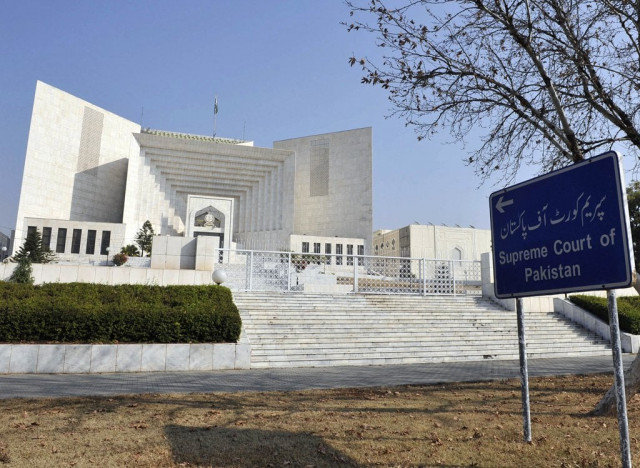Private schools making billions, says SC
CJP says audit report of private schools self-explanatory

Supreme Court. PHOTO: AFP/FILE
The bench, led by Chief Justice Khosa, conducted hearing of the case pertaining to the increase in school fees. The chief justice said the audit report of private schools was self-explanatory that private schools were collecting billions of rupees in annual revenues.
Counsel for private schools Makhdoom Ali Khan maintained that restriction of more than 5% increase in school fees was inappropriate.
However, Chief Justice Khosa said that parliament could amend or legislate on the matter whenever it desired.
Private schools barred from charging fee in advance
The defence counsel said that after the terror attacks at the Army Public School in Peshawar in 2014, schools had been ordered to increase their security and the government allowed the schools to increase their admission fees to meet the increased expenditures on security.
Sitting on the bench, Justice Ejazul Ahsan maintained that the condition for 5% raise in fees was for three years after which schools could resubmit fresh fee schedules, while having their licences renewed.
Schools impose several other charges on the students in addition to tuition fees, but the additional collections were seldom spent for the specific purpose.
The lawyer argued that law against increase in school fees was unjustified. He said that if a school could justify the increase, it should have the permission, but if it could not provide justification it should be denied permission to increase the fees. Justice Ahsan maintained that it was the responsibility of the State to keep school fees within reasonable limits.
Selling ‘overpriced’ uniform, stationery in Sindh private schools banned
The counsel said that the state collected taxes from private schools in England which were then spent on the public schools, while in the US, many private schools have their fees remarkably higher than even university fees. Justice Ahsan remarked that in Pakistan, the State was not adequately playing its role. In Pakistan, parents do not have the choice in schools.
The counsel said that rate in fee increase should be determined by the authorities concerned. At this, the chief justice said the State knew about its institutions and officials, adding that it was possible that schools asked for 7% raise and they gave them 70%. “Limiting the increase to 5% was set to thwart corruption,” Chief Justice Khosa stressed.
According to Article 25 of the Constitution, the chief justice said, the State was responsible for providing education to its citizens for which the government must determine a system. “The State can also ensure education through private schools,” Chief Justice Khosa added.
Private schools continue to fleece parents in Lahore
The chief justice told the lawyer to suggest as to how the rate of fees increase would be determined. He asked whether any school had ever increased its fees by less than 5%. If any school kept its fee increase within 5%, the court could fix this principle for all other schools, he remarked.
The chief justice said that the audit report of the schools was an eye-opener. The number of branches of private schools was expanding and schools were making billions and they still wanted an increase in the fees of more than 5%. The hearing was adjourned while the counsel were still presenting their arguments.



















COMMENTS
Comments are moderated and generally will be posted if they are on-topic and not abusive.
For more information, please see our Comments FAQ